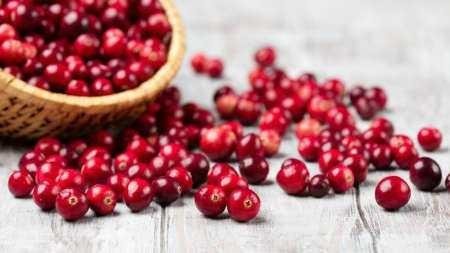Cranberry Juice Won’t Cure Urinary Infections Despite What You’ve Heard

If you’ve ever turned to a glass of cranberry juice in hopes of curing a urinary tract infection (UTI) then we have bad news: it's not going to help. New health guidelines released by the National Institute for Health and Care Excellence (NICE) announced the best way to treat the painful infections, and it doesn't include downing the superfruit.
Instead, NICE says the best way to cure a UTI is with antibiotics. Doctors aiming to treat and prevent UTIs should take a broader approach, such as asking patients about the severity and regularity of their symptoms, understanding how to manage their illnesses, as well as testing for infections to identify which antibiotics will work best.
“We recognize that the majority of UTIs will require antibiotic treatment, but we need to be smarter with our use of these medicines,” said Professor Mark Baker, director for the center of guidelines at NICE, in a statement.
It goes against the old wives’ tale claiming that cranberry juice prevents or can treat UTIs – one that cranberry producers have spent millions promoting. UTIs can occur when bacteria enter into the urinary tract system, which includes the bladder, kidneys, ureters, and urethra. A-type proanthocyanidins (PACs) is an active ingredient found in cranberries that can prevent bacteria, particularly E. coli, from adhering to the bladder wall. However, most studies show that juice and other supplements don’t contain enough PACs to prevent bacteria from sticking to the urinary tract, citing no significant difference in women who take cranberry supplements and those who don’t.
Because women’s urethras are shorter, women are more prone to the condition than men. Symptoms can include cramping around the pelvis, extreme fatigue, fever, pain or stinging when urinating, frequent urination (or a constant feeling like you need to go), and cloudy, bloody, discolored or smelly pee.
Antibiotics and penicillin are used to treat UTIs, but because UTIs are considered to be the most common bacterial infection – nearly one-in-three women will have had at least one UTI by the age of 24, almost half of all women in their lifetime – NICE says “antibiotic resistance in UTIs is ‘common’ and the problem is increasing”.
However, while cranberry juice may not treat UTIs, research has found that cranberry supplements with a high enough PAC count may lower the risk of getting an infection by 50 percent. Though, because the US Food and Drug Administration doesn’t regulate supplements it’s difficult to determine exactly what is found in that little cranberry pill.
All things aside, the best ways to prevent infections include developing good bowel habits, balancing “good” bacteria with bad, pee and drink water regularly, and wear loose-fitting breathable materials.